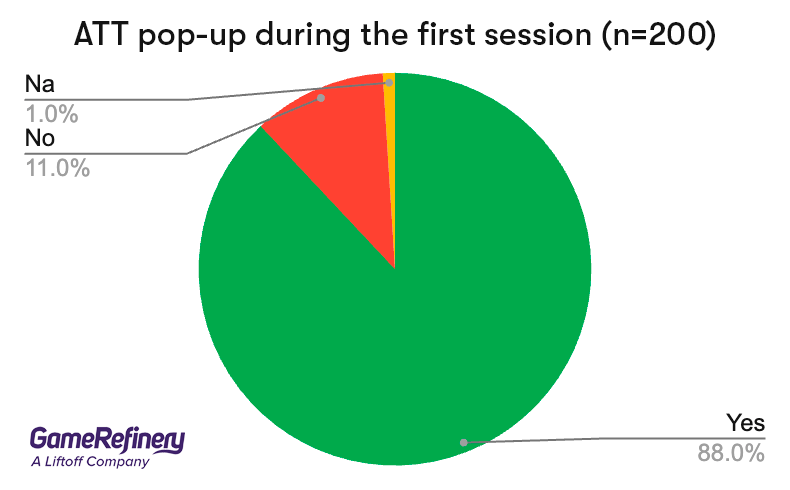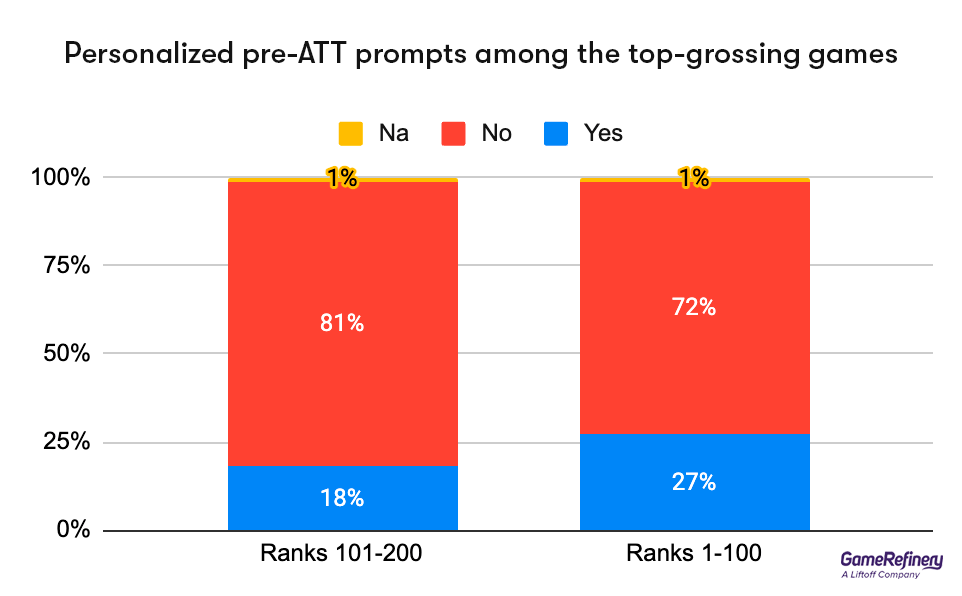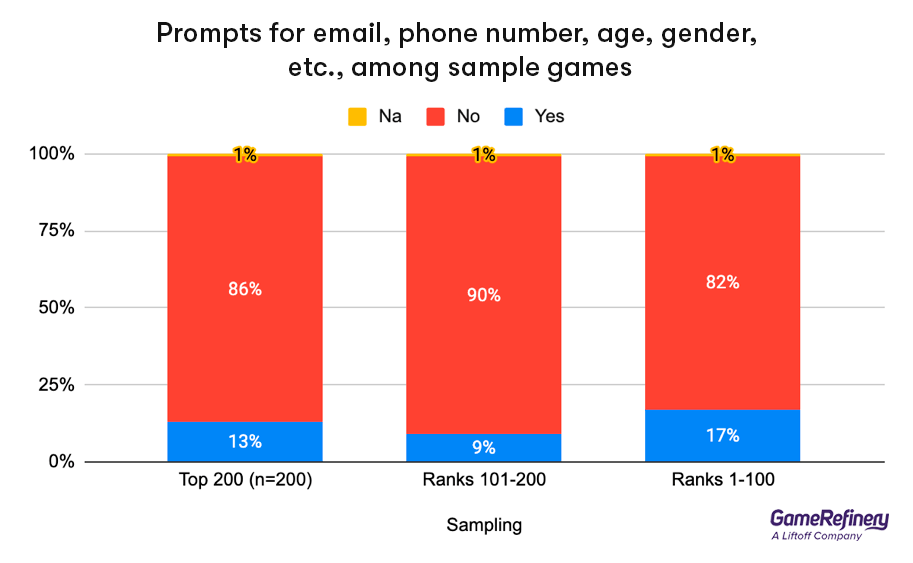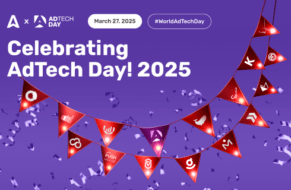Ever wondered if there’s a right time to display your in-app pop-up notification asking users to allow or deny tracking? Mobile gaming experts Game Refinery wondered about just that and analysed the ATT tracking pop-up data of the 200 top-grossing US games.
How ATT impacted tracking
In April 2021, Apple introduced its App Tracking Transparency (ATT) policy, which required companies to obtain permission from app users before tracking their data and activity for advertising purposes across other apps and websites. This policy update has had a significant impact on mobile marketers and advertisers, making it more challenging for them to access the data they rely on for user acquisition.
According to Snap, Facebook, Twitter, and YouTube, the implementation of ATT resulted in losses of nearly $10 billion at the time, as reported by the Financial Times.
To get ATT permission, companies typically employ an in-app pop-up notification, giving users the option to allow or deny tracking on a per-app/game basis. However, there are no specific guidelines regarding when or where this pop-up notification should appear within the app.
Context-aware tech: The secret to 81% more conversions
Learn how leading apps are using context-aware technology to deliver perfectly-timed offers, reduce churn & transform passive users into loyal fans.
Learn moreThis raises the question:
Is there an ideal timing for requesting users’ consent for data tracking?
The majority of sampled games (88%) implemented ATT pop-ups within a 25-minute timeframe. This indicates a widespread adherence among app developers to Apple’s privacy policy guidelines.
However, 11% of games didn’t feature any pop-ups within the same time frame. This could be attributed to the pop-up appearing much later in the game or the developers choosing not to seek access to the identifier.
Top 50 games ask for tracking earlier
Source: Game Refinery
The analysis also found that 81% of the 177 games with ATT pop-ups displayed them within the initial 30 seconds of gameplay.
The specific timing of the pop-ups varied from 1 second to 15 minutes after launching the application, suggesting that some games opt to establish trust with users during their gameplay session before requesting permission to track their data.
Learning from the top games
Examining the top 50 grossing games, the timing of ATT pop-ups ranged from 1 second to 2 minutes and 20 seconds. In this subset, 84% of the games exhibited the pop-up within the first 30 seconds, and 58% of the top 50 games displayed the pop-up between 6 and 15 seconds.
These findings suggest that there’s a “golden window” for ATT pop-up timing, typically occurring within the first six to 30 seconds of gameplay.
The study also found that 26% of games utilise additional, personalised pop-ups. And games within the top 100 are twice as likely to feature additional pop-ups, suggesting that personalized pre-ATT prompts may be more common in top-grossing games or games that aim to maximize revenue through targeted advertising.
Personalisation matters
Source: Game Refinery
Collecting more user information
The analysis revealed a small percentage of the sampled games that included additional prompts for user information. Specifically, 13% of the examined games implemented supplementary prompts, requesting details such as email addresses, phone numbers, age, gender, and other personal data.
Notably, the presence of these additional prompts varied based on the games’ rankings in the top-grossing chart. Among the games within the top-grossing 100 chart, 17% included such prompts, whereas only 9% of the games ranked between 101 and 200 featured them.
Top games ask for more user information
Source: Game Refinery
It indicates that games generating higher revenue are approximately 89% more likely to request additional user information compared to games ranking between 101 and 200.
The data suggests that the most effective time to display ATT pop-ups is within the initial 30 seconds of gameplay. However, the study lacked information on user acceptance or rejection of these notifications.
Key takeaways
- Majority of games implement ATT pop-ups within 25 minutes
- 84% display ATT pop-ups within 30 seconds, indicating an ideal window for user engagement
- Higher-revenue games (top 100) are 89% more likely to request additional user information compared to lower-ranked games





















